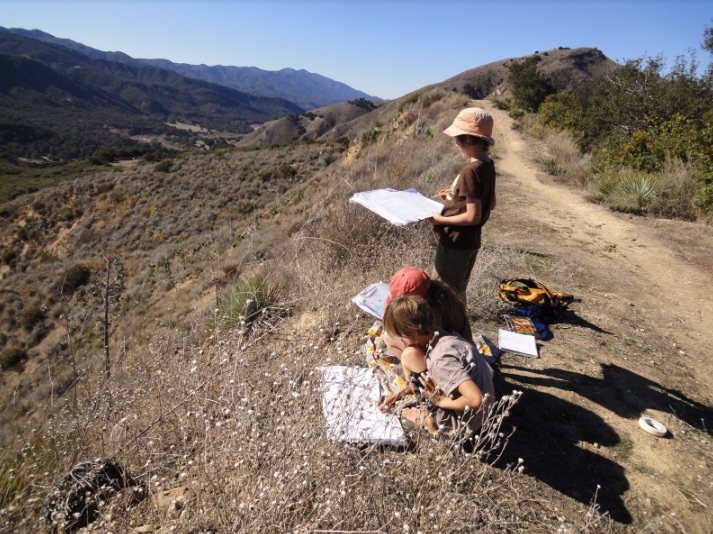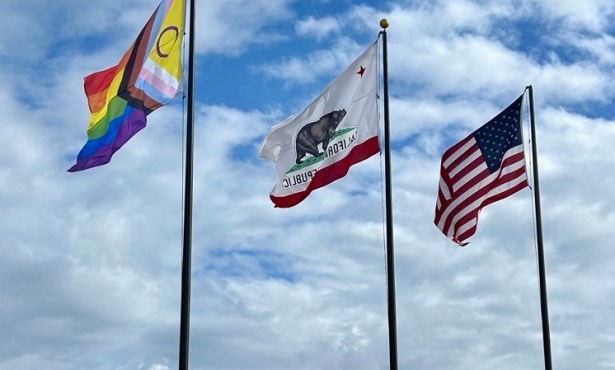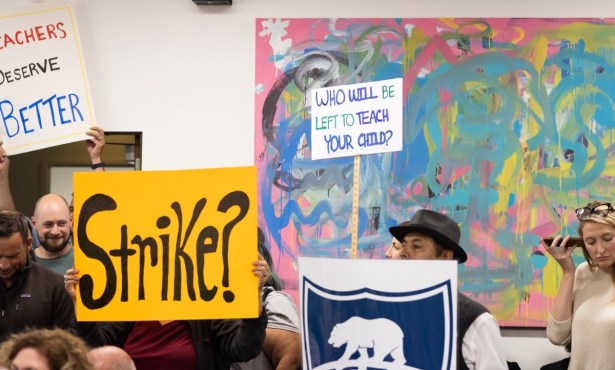Proposed Thoreau Charter Embraces Nature, Social Justice
Nature-Based School Also Focuses on Social-Emotional Health

Spending time in nature has been proved to enhance children’s learning abilities, but in this day and age kids are spending more time on devices and less time outside — so a group of locals came together to create a charter school, the proposed Thoreau Community School.
“The school addresses the needs of children who need community-oriented, outdoor learning,” said Marianne D’Emidio Caston, president of the Thoreau Board of Directors. “Many children don’t do well in traditional schools, not because they’re bad, but because they need an active environment to be in.”
The nature-based TK-6 public charter first put in its petition with the Santa Barbara Unified School District in October 2020. At the end of February, the district’s Board of Education will vote to approve Thoreau or not. The school has substantial support, as more than 270 community members have shown interest as well as teachers both in and outside of Santa Barbara Unified. The idea for the school started in 2017, but its heavy emphasis on outdoor learning also makes it fitting during the pandemic.
Get the top stories in your inbox by signing up for our daily newsletter, Indy Today.
A typical school day for students involves outdoor learning and play through real-life nature exploration on field trips and a school garden that they can grow their own food in. The purpose is not just for children to enjoy the outdoors, but to teach them about ecological literacy, climate change, and stewardship of the planet.
“Nature is very healing,” said Allison Turkish, a founding member and outreach committee member. “It supports the whole child, meaning that we have academics but we also recognize that social and emotional skills and relationships are just as important. We want to help build that foundation through learning to take care of nature and take care of themselves and each other.”
Turkish explained that the school’s nontraditional approach goes beyond nature-based education. She said that classes can consist of mixed ages, like Montessori schools. “It depends on what is best for that student,” she said. “They may do better as the oldest in their class or they may do better as the youngest.”
Additionally, the school is a project-based one that focuses on child-centered assignments, meaning that if a child is interested in a particular subject they can do a project based on their interest. Despite this approach, all teaching practices will still be aligned with the California Common Core State Standards.
“I worry that some people think if you focus on the natural world or on the social emotional that you won’t be enough on academics,” D’Emidio Caston said. “I want to be sure people understand that academics come from learning through experience even better than through worksheets. We are not minimizing academics; it’s not a soft curriculum.”
Generally, a big criticism against charter schools is that they provide a school for white, affluent students to transfer out of the diverse public schools they were attending, further segregating public school students. Thoreau has taken measures to ensure that if approved, the school would be diverse.
The founding members have put out flyers to low-income and Latino families through Foodbank packages, El Centro, La Casa de la Raza, and Latino churches. They also decided that Thoreau would offer after-school childcare and free breakfast and free lunch programs, as those are heavily utilized by the Latino students currently enrolled in the district. Though they do not have a school site yet, the founders want it to be downtown to be more accessible to families without vehicles.
“One huge component is that we really are teaching about different cultures, world geography, and teaching about empathy and compassion,” Turkish said. “Teaching history in a way that’s age appropriate and about where we are, like teaching about the Chumash. We want to celebrate and teach diversity.”
Besides an emphasis on nature and social-emotional learning, the school also puts focus on teaching students about social justice and equity. It’s based on the fact that the school’s eponym, Henry David Thoreau, was an abolitionist in addition to being a nature advocate.
According to the school’s petition, beginning in the early grades, students will learn about variance in family structures, appreciation of variance in skin tones, special talents, or needs. They will begin to formulate an understanding of their own strengths, affinities, and skills as they construct their own sense of self. Teachers will provide lessons that help students examine their beliefs and biases in the learning community and to collaboratively question the justice in the classroom, school, and community.
Thoreau Community School is aiming to open for the 2021-2022 school year. In its first year, it intends to enroll 100 students, TK-6th, and reach maximum capacity in year five, with 300 students. The Santa Barbara Unified Board will vote on Thoreau’s approval at its February 23 meeting at 6:30 p.m.
Every day, the staff of the Santa Barbara Independent works hard to sort out truth from rumor and keep you informed of what’s happening across the entire Santa Barbara community. Now there’s a way to directly enable these efforts. Support the Independent by making a direct contribution or with a subscription to Indy+.



